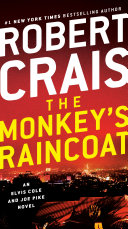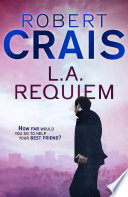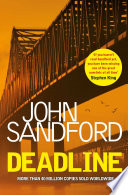Dive into the captivating world of crime fiction with these authors like Robert Crais, known for crafting compelling mysteries that keep you guessing until the very end!
Crime fiction has intrigued readers for generations, offering an enthralling escape into the dark corners of human nature and the complexities of crime-solving. With diverse sub-genres ranging from gritty detective stories to heart-pounding thrillers, crime fiction has produced many unforgettable characters and gripping narratives. The genre’s appeal lies in its ability to showcase the delicate balance between good and evil, challenging readers to unravel mysteries alongside the protagonists while exploring the depths of human emotion and intrigue.
Robert Crais stands as one of the best crime thriller authors of our time. Known for his vivid storytelling and exceptional character development, Crais has earned several prestigious awards throughout his career, including the Anthony and Macavity awards. His most popular works include the Elvis Cole and Joe Pike series, which have cemented his status as a master of crime fiction.
With bestsellers like The Monkey’s Raincoat and L.A. Requiem, Crais has consistently delivered compelling tales that leave readers eagerly anticipating his next release. His unique blend of hard-boiled detective work, psychological depth, and Los Angeles atmosphere has influenced countless writers in the genre.
This list of authors like Robert Crais will help keep fans’ bookshelves stocked with equally compelling crime fiction that delivers the same level of character-driven storytelling and intricate plotting.
For more recommendations, you might also enjoy exploring authors like Harlan Coben, authors like Gillian Flynn, best detective novel series.
Must-Read Authors Like Robert Crais
If you enjoy mystery and suspense, consider exploring best detective novel series, authors like Harlan Coben, authors like Agatha Christie.
1. John Sandford, 1944 -
John Sandford, the pen name of Pulitzer Prize-winning journalist John Roswell Camp, brings journalistic precision to crime fiction. With more than 40 novels to his credit, Sandford is best known for his popular Prey series featuring Lucas Davenport and his Virgil Flowers novels. His background in journalism provides authentic detail and pacing that mirrors real police work.
Critics have highly praised Sandford’s novels, and he has received several accolades, including the John Creasey Memorial Dagger Award for his first novel. His work shares Crais’s talent for creating complex law enforcement characters who are both professionally competent and personally flawed.
Rules of Prey, the first novel in the Prey series, follows Minneapolis police lieutenant Lucas Davenport as he uses unconventional methods to catch a serial killer. The novel is praised for its complex characters, engaging plot, and sharp dialogue that established the foundation for one of crime fiction’s most enduring series.
Like Crais, Sandford excels at balancing procedural accuracy with character development, creating protagonists who evolve throughout their series while maintaining the core traits that make them compelling.
“Never kill anyone you know. Never have a motive. Never follow a discernible pattern. Never carry a weapon after it has been used.”
John Sandford, Rules of Prey
2. Robert B. Parker, 1932 - 2010
Robert B. Parker stands as one of crime fiction’s most influential writers, well-known for his Spenser series which captivated audiences since its 1973 debut. With over 70 novels to his name, Parker’s work has often been compared to Raymond Chandler and Dashiell Hammett, placing him among the masters of the private detective genre.
Parker received numerous accolades throughout his career, including the Grand Master Award from the Mystery Writers of America and an Edgar Award for Best Novel. His crisp, dialogue-driven prose and morally complex characters influenced a generation of crime writers, including Crais himself.
Early Autumn showcases Parker’s ability to blend humor, pathos, and thrilling action into compelling narrative. In this Edgar Award-winning novel, private investigator Spenser is hired to protect a teenage boy from his own family’s dangerous schemes, demonstrating Parker’s skill at exploring family dysfunction through a crime fiction lens.
The Spenser series inspired the popular television show Spenser: For Hire, solidifying Parker’s place in the crime fiction pantheon and proving that well-written detective fiction could translate successfully to other media.
“Mr. Spenser,” the lower lip moistened again, mouth open a little, tip of the tongue running along the inner edge of the lip. “Please. I have no one else. Please.”
Robert B. Parker, Early Autumn
3. Lawrence Block, 1938 -
Lawrence Block represents the versatility possible within crime fiction, with a long and successful career spanning over 100 novels and short story collections. Block’s work covers various sub-genres of crime fiction, and he has received numerous accolades, including the Grand Master Award from the Mystery Writers of America and multiple Edgar Awards.
His most famous creations include Matthew Scudder, an alcoholic ex-cop turned private investigator, and Bernie Rhodenbarr, a lovable burglar who solves crimes between heists. This range demonstrates Block’s ability to find compelling stories across the entire spectrum of criminal activity.
Eight Million Ways to Die stands as one of Block’s most highly acclaimed novels, featuring Matthew Scudder investigating the murder of a high-end prostitute. This dark and gritty novel explores Scudder’s struggles with alcoholism while navigating New York City’s seedy underworld, showing how personal demons can both hinder and enhance investigative work.
Block shares Crais’s talent for creating flawed protagonists whose personal struggles add depth to their professional investigations, proving that the best crime fiction comes from character-driven storytelling.
“She lit her cigarette and positioned the lighter on top of the cigarette pack.”
Lawrence Block, Eight Million Ways to Die
4. Dennis Lehane, 1965 -
Dennis Lehane has established himself as a master of character-driven crime fiction, often set in his hometown of Boston. Since his first novel in 1994, Lehane has written several bestsellers, including Mystic River, which won the Anthony Award for Best Novel and was adapted into an Academy Award-winning film directed by Clint Eastwood.
Lehane’s work has been lauded for its sharp dialogue, realistic characters, and intricate plots that explore the intersection of personal history and criminal activity. His ability to weave together past and present trauma creates crime fiction that operates on multiple emotional levels.
Gone, Baby, Gone represents one of Lehane’s most celebrated novels, featuring private investigators Patrick Kenzie and Angela Gennaro. Tasked with finding a missing child, they navigate Boston’s criminal underworld while confronting complex moral dilemmas. The novel showcases Lehane’s ability to create emotionally charged narratives that question the nature of justice itself.
Like Crais, Lehane understands that the best crime fiction explores not just who committed the crime, but why people make the choices that lead to tragedy and redemption.
“Lionel,” his wife said, “stop making excuses for Helene.”
Dennis Lehane, Gone, Baby, Gone
5. Jonathan Kellerman, 1949 -
Psychologist and bestselling author Jonathan Kellerman brings unique expertise to crime fiction through his Alex Delaware novels, which have been lauded for their realistic portrayal of psychological aspects of crime. His professional background as a child psychologist adds authenticity to stories exploring the intersection of mental health and criminal behavior.
Kellerman has won numerous awards, including the Edgar Award for Best First Novel and the Anthony Award for Best Novel. His work has been praised for its intricate plots, well-developed characters, and authentic psychological insights that elevate crime fiction beyond simple puzzle-solving.
When the Bough Breaks introduces child psychologist Alex Delaware, who is called upon to help solve a brutal double murder. Delaware’s expertise in psychology adds depth and nuance to the investigation, while Kellerman’s writing creates a captivating mystery that explores the dark side of family dynamics.
Kellerman shares Crais’s commitment to character development, showing how professional expertise can both illuminate and complicate criminal investigations while creating protagonists whose specialized knowledge makes them invaluable to law enforcement.
“He stood and looked out the window, gazing out over the tops of pines and eucalyptus. From where I sat I could see smoke rising in indolent swirls from a distant fireplace.”
Jonathan Kellerman, When the Bough Breaks
6. Stuart Woods, 1938 - 2022
Stuart Woods was a prolific author of crime fiction, known for his Stone Barrington series and Will Lee novels. With over 80 books to his name, Woods built a reputation for creating engaging, fast-paced stories driven by witty dialogue and sophisticated plotting. His work often featured wealthy, well-connected protagonists navigating high-stakes criminal conspiracies.
Woods received several accolades throughout his career, including the Edgar Award for Best First Novel. His ability to blend crime fiction with elements of thriller and adventure fiction created a distinctive voice that attracted a broad readership seeking entertainment alongside mystery.
Chiefs, Woods’s first novel, follows three generations of police chiefs in a small Georgia town, each investigating a series of murders that span decades. The novel has been praised for its intricate plotting, memorable characters, and vivid Southern atmosphere. Chiefs was later adapted into a successful television miniseries, demonstrating the visual appeal of Woods’s storytelling.
Woods shared Crais’s talent for creating crime fiction that works on multiple levels, combining solid mystery plotting with rich character development and atmospheric settings that make readers feel immersed in the story world.
“The path turned sharply to the right, but he lunged ahead into thick brush again, hoping for safety.”
Stuart Woods, Chiefs
7. Patricia Cornwell, 1956 -
Patricia Cornwell has revolutionized crime fiction through her Kay Scarpetta series, featuring the iconic medical examiner and her investigations into complex and chilling cases. Cornwell’s work has garnered multiple awards, including the Edgar Award for Best First Novel and the Gold Dagger Award for Best Crime Novel, establishing her as one of the genre’s most important voices.
Her novels have been praised for their attention to forensic detail, strong character development, and gripping plots that showcase cutting-edge investigative techniques. Cornwell’s background research and scientific accuracy have influenced how crime fiction portrays forensic investigation.
Postmortem, the first book in the Kay Scarpetta series, introduces Dr. Scarpetta as she confronts a serial killer who leaves few clues and eludes capture. Cornwell’s expertise in forensic science lends authenticity to her writing, creating suspenseful and engaging mysteries that satisfy readers’ craving for both scientific accuracy and thrilling storytelling.
Cornwell shares Crais’s commitment to procedural authenticity while maintaining focus on character development, proving that technical accuracy enhances rather than hinders compelling storytelling.
“The guy’s only advantage in life is he’s big and white, so he makes himself bigger and whiter by carrying a gun and a badge.”
Patricia Cornwell, Postmortem
8. James Lee Burke, 1936 -
James Lee Burke is renowned for his Dave Robicheaux novels set in Louisiana and his Billy Bob Holland series set in Texas. Burke’s work has been praised for its evocative prose, vivid settings, and complex characters that bring the American South to life through crime fiction. His atmospheric writing creates a sense of place that becomes integral to the storytelling.
Burke has received multiple prestigious awards, including two Edgar Awards for Best Novel and the Grand Master Award from the Mystery Writers of America. He also received the Guggenheim Fellowship for Creative Arts in Fiction, recognizing his contribution to American literature beyond the crime genre.
The Neon Rain, the first novel in the Dave Robicheaux series, follows New Orleans detective Robicheaux as he investigates a young woman’s murder, uncovering webs of corruption and violence. With its rich atmosphere and intricate plotting, the novel showcases Burke’s talent for weaving together crime fiction, Southern Gothic, and literary fiction.
Burke shares Crais’s ability to create crime fiction that transcends genre boundaries, using criminal investigations to explore larger themes about American society, morality, and the price of justice.
“When you’ve hunted through the whole marsh for the bull ‘gator that ate your hog and you come up empty, go back where you started and commence again. You walked right over him.”
James Lee Burke, The Neon Rain
9. Ian Rankin, 1960 -
Scottish crime writer Ian Rankin is best known for his Inspector Rebus series, which fans appreciate for its gritty portrayal of Edinburgh’s dark underbelly. Rankin has received several awards and honors for his work, including the Edgar Award for Best Novel, the Gold Dagger Award, and the Diamond Dagger for Lifetime Achievement from the Crime Writers’ Association.
Rankin’s work explores the intersection of crime and politics in contemporary Scotland, using Edinburgh’s complex social landscape as both setting and character. His ability to weave together personal and political corruption creates crime fiction that reflects broader social issues.
Black and Blue, the eighth installment in the Inspector Rebus series, draws protagonist John Rebus into a deadly game with a serial killer while simultaneously investigating a cold case. The novel delves deep into Scottish society’s dark corners, while Rankin’s skillful storytelling keeps readers engaged with multiple interconnected mysteries.
Rankin shares Crais’s talent for using crime fiction to explore larger social and political themes, creating stories that work both as entertainment and social commentary.
“Minto was ready for violence until he saw who it was. Then he just snarled and strode back to the living room.”
Ian Rankin, Black and Blue
10. Jeffrey Deaver, 1950 -
Jeffrey Deaver is renowned for his intricate plots and meticulous research that creates crime fiction puzzles of extraordinary complexity. With over 40 novels, Deaver has received several awards, including the Edgar Award for Best Short Story and the Steel Dagger Award for Best Thriller, establishing him as a master of the psychological thriller.
His most famous character is quadriplegic forensic detective Lincoln Rhyme, featured in a series of popular novels and a successful film adaptation starring Denzel Washington. Deaver’s ability to create compelling characters who overcome physical limitations while solving complex crimes demonstrates his commitment to character-driven storytelling.
The Bone Collector, the first book in the Lincoln Rhyme series, introduces readers to the brilliant, disabled forensic detective as he faces off against a twisted serial killer. The book has been praised for its engaging plot, richly developed characters, and detailed forensic science that educates while entertaining.
Deaver shares Crais’s talent for creating suspense through character development rather than simple action, showing how intellectual investigation can be just as thrilling as physical pursuit.
“A sudden crack resonated through the air, and T.J. flinched. John gave a short scream.”
Jeffrey Deaver, The Bone Collector
The Evolution of Crime Fiction in 2025
Crime fiction continues evolving while maintaining the core elements that make it compelling. Authors like Robert Crais helped establish modern standards for character-driven mysteries, but contemporary writers are pushing the genre forward with new perspectives and approaches.
Current Trends in Crime Fiction:
Diverse Voices: Contemporary crime fiction features authors from varied backgrounds bringing fresh perspectives to traditional detective and thriller narratives, creating more inclusive representation of both investigators and communities.
Psychological Complexity: Modern crime writers increasingly focus on the psychological motivations behind criminal behavior, exploring trauma, mental health, and social factors that contribute to crime.
Technology Integration: Today’s crime fiction naturally incorporates digital forensics, social media investigation, and cybercrime, reflecting how technology has transformed both criminal activity and investigation methods.
Global Perspectives: International crime fiction has gained popularity, with Nordic noir, Japanese detective fiction, and other regional approaches expanding the genre’s geographical and cultural scope.
Social Justice Themes: Contemporary authors use crime fiction to explore systemic inequalities, police reform, and social justice issues, making the genre more socially conscious and politically engaged.
Procedural Authenticity: Modern readers expect accurate portrayals of forensic science, legal procedures, and police work, pushing authors toward greater research and authenticity in their technical details.
These authors understand that great crime fiction serves multiple purposes: entertainment, social commentary, and psychological exploration. They create stories that satisfy readers’ desire for puzzle-solving while addressing deeper questions about justice, morality, and human nature.
Whether you prefer hard-boiled private detectives, police procedurals, or psychological thrillers, these authors deliver the complex characters, intricate plotting, and atmospheric storytelling that make Robert Crais such a compelling writer. Each brings their own unique voice while honoring the genre’s commitment to exploring the dark side of human nature through compelling, character-driven narratives.





